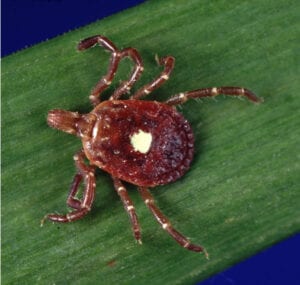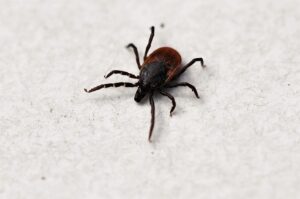Welcome to the Rare Classroom, a new series from Patient Worthy. Rare Classroom is designed for the curious reader who wants to get informed on some of the rarest, most mysterious diseases and conditions. There are thousands of rare diseases out there, but only a very small number of them have viable treatments and regularly make the news. This series is an opportunity to learn the basics about some of the diseases that almost no one hears much about or that we otherwise haven’t been able to report on very often.
Eyes front and ears open. Class is now in session.

The rare disease that we will be learning about today is:
Alpha-Gal Syndrome
Sometimes called alpha-gal allergy or mammalian meat allergy.
What is Alpha-Gal Syndrome?
- Alpha-gal syndrome is a rare form of meat allergy
- This meat allergy is characterized by a delayed onset of symptoms
- This allergy is a response specifically to meat from mammals
- The syndrome was first reported in 2002
- The allergy is a reaction to the carbohydrate galactose-alpha-1,3-galactose (alpha-gal) in which the body overloads with IgE antibodies in response to contact with alpha-gal
- Alpha-gal naturally occurs in all mammals except for apes (including humans) and Old World monkeys
- Though generally uncommon, cases of alpha-gal syndrome are increasing
How Do You Get It?
- Alpha-gal syndrome occurs after a person has been bitten by a tick
- Certain species of ticks are associated with alpha-gal syndrome; the species implicated depends on the region
- In the United States, the lone star tick (Amblyomma americanum) is responsible. It is distinguished by a white spot on the center of the back. Populations of the tick (and cases of the syndrome) are highest in the southeast.
- The castor bean tick (Ixodes ricinus) in Europe, the paralysis tick (Ixodes holocyclus) in Australia, Haemaphysalis longicornis in Japan, and an unknown species in South Africa are believed to cause the disease
- The tick transmits the alpha-gal by feeding on another mammal
- It is unclear what causes some people to develop a reaction, as only a select few will develop the syndrome
- When the immune system responds to the foreign alpha-gal with IgE antibodies, any future intake of mammalian meat will provoke an allergic response.
What Are the Symptoms?
- The allergic reaction triggered by alpha-gal syndrome is quite similar to other food allergies except for the delayed onset of symptoms, which typically takes 3-8 hours following the ingestion of mammalian meat
- These symptoms include:
- Angioedema (swelling)
- Hives
- Whole body itching, which can become severe
- Gastrointestinal disturbance
- Anaphylaxis
- Around 70 percent of cases include respiratory distress, making alpha-gal especially dangerous for people with asthma
- However, not every exposure to alpha-gal results in allergic reaction in people with the syndrome
- Generally, sensitivity to the allergy tends to vary from case to case; in some anecdotal reports, even being in the same room where mammal meat is being cooked can be enough to trigger symptoms
- Alpha-gal is also found in intravenous fluid replacements Haemaccel and Gelofusine and in cetuximab, a cancer drug; these could be another way of triggering symptoms
How Is It Treated?
- There is no real treatment for alpha-gal syndrome aside from the avoidance of mammal meat and potentially other mammal products as well
- In mild cases, over the counter antihistamines can help relieve symptoms
- While the syndrome is often permanent, in other cases the allergy can recede; this recovery can take as few as eight months or as long as five years
- However, another tick bite can ‘reset’ the allergy
- Only two successful desensitizations, a form of allergy immunotherapy, have been conducted in alpha-gal syndrome
- Prevention and avoidance of tick bites from the implicated species are the best way to avoid alpha-gal syndrome
Where Can I Learn More???
- Learn more about this disease from Tick-Borne Conditions United.
- Check out our cornerstone on this disease here.








